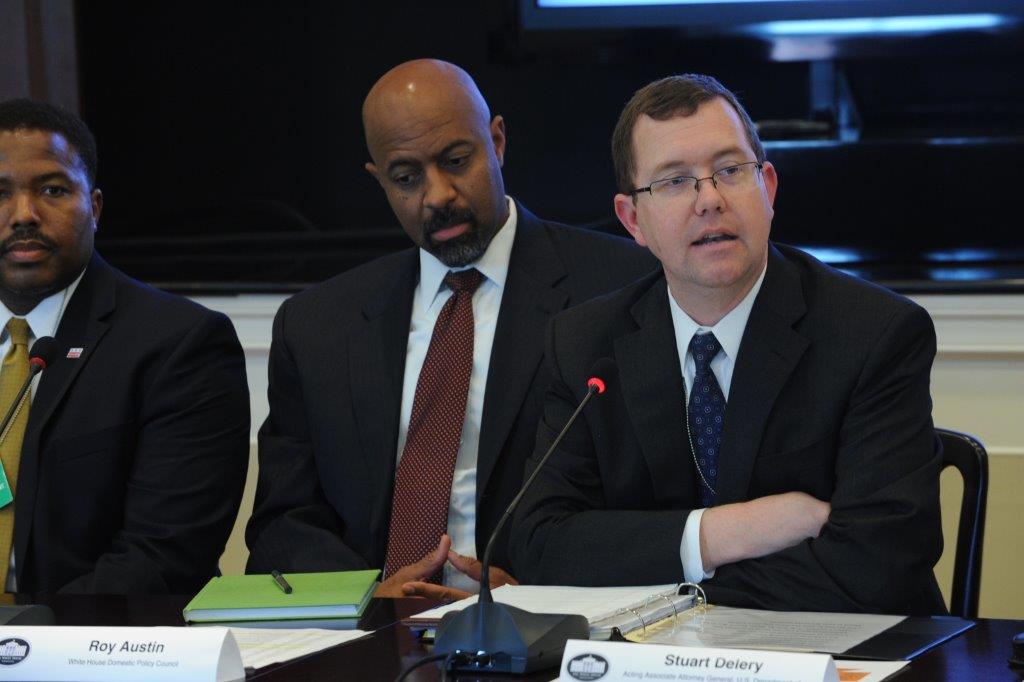Toward Greater Justice for Our Nation’s Elders
 By Stuart F. Delery, Acting Associate Attorney General
By Stuart F. Delery, Acting Associate Attorney General
Earlier this week President Obama issued a proclamation designating Monday, June 15, 2015 as World Elder Abuse Awareness Day (https://www.whitehouse.gov/the-press-office/2015/06/12/presidential-proclamation-world-elder-abuse-awareness-day-2015). The President called on all Americans to observe the day by “learning the signs of elder abuse, neglect, and exploitation, and by raising awareness about this important public health issue.” On Tuesday, Cecilia Muñoz, Assistant to the President and Director of the Domestic Policy Council, welcomed fifty advocates, physicians, prosecutors, researchers, representatives of financial institutions, and state and local government officials to the White House for an Elder Justice Forum to talk about how best to address and prevent elder abuse and financial exploitation. With more than 40 million Americans already older than 65, and with 10,000 more Americans joining their ranks every day, these are issues of increasing urgency.
The White House meeting participants clearly understood this urgency, and came to the Elder Justice Forum with innovative ideas for strengthening law enforcement and prosecutorial efforts in this arena; supporting research and victim services; and preventing and combatting elder financial exploitation. As the meeting participants shared their ideas with each other and with the senior Administration officials attending the forum, I was struck by several common themes:
We should employ multi-faceted, multi-cultural, and multi-disciplinary approaches to combat the mistreatment of older Americans. Victims of elder abuse and financial exploitation are likely to have contact with many different professionals in their communities. Unless those professionals – including 911 operators, emergency medical technicians, law enforcement officers, postal workers, health care providers, and bankers – are trained to ask the right (and culturally-appropriate) questions, to share information with one another, and to report their concerns to a single point of contact (such as a dedicated elder abuse prosecutor or case manager), many of our family members, friends, and neighbors will continue to suffer in silence.
We need to know more to do more. Our understanding of elder abuse lags far behind our knowledge of child abuse and domestic violence – a fact that is both alarming and unacceptable. While we have made some inroads on the research front, we must redouble those efforts and identify the factors that leave older adults vulnerable to mistreatment, screening tools for recognizing victims, and effective interventions to address and prevent mistreatment.
We can work better by working together. By far, the need to work together was the most resounding theme to echo throughout the day. Elder abuse, neglect, and financial exploitation do not recognize cultural, demographic, or geographic boundaries, and our efforts to develop sustainable and effective solutions must cross the same lines. While I am proud of the Administration’s elder justice work to date, we can achieve even more by working with our colleagues in state and local government and the private sector to improve the quality of life for this vulnerable – and growing – population.
This week’s Elder Justice Forum, as well as the White House Conference on Aging in July (http://www.whitehouseconferenceonaging.gov/), will create significant momentum behind this critical cause, and an opportunity to make meaningful progress in the fight against elder abuse and financial exploitation. We should seize that opportunity, because we owe our nation’s seniors nothing less.

 U.S. Department
of Justice
U.S. Department
of Justice
